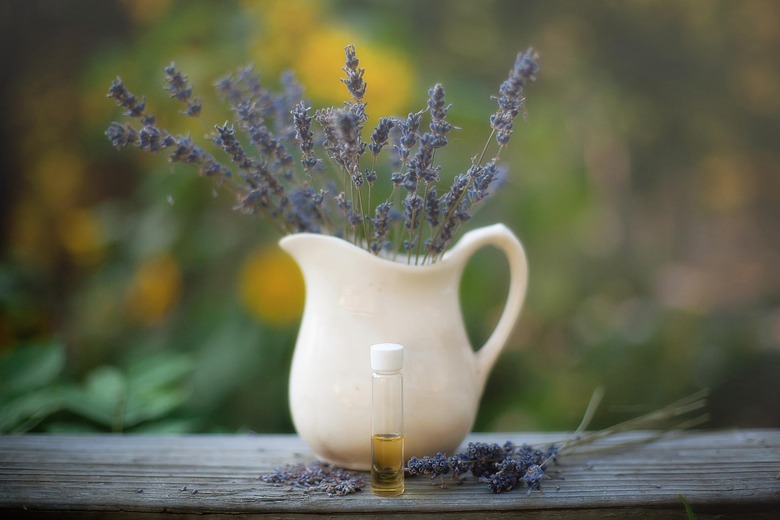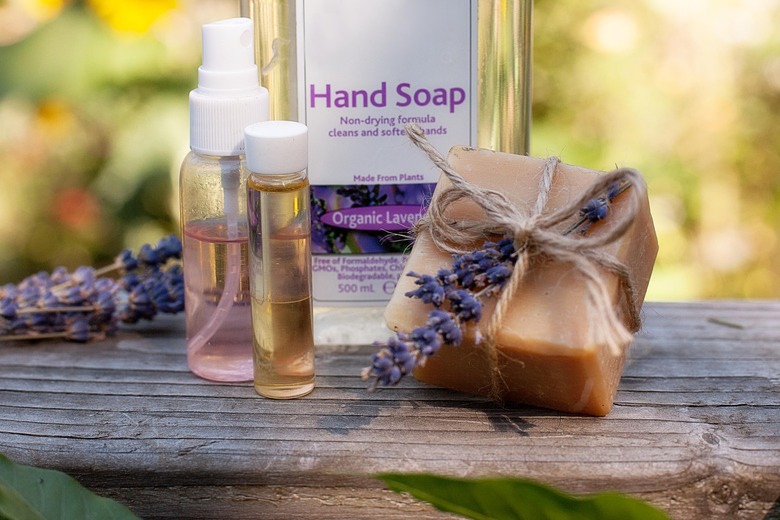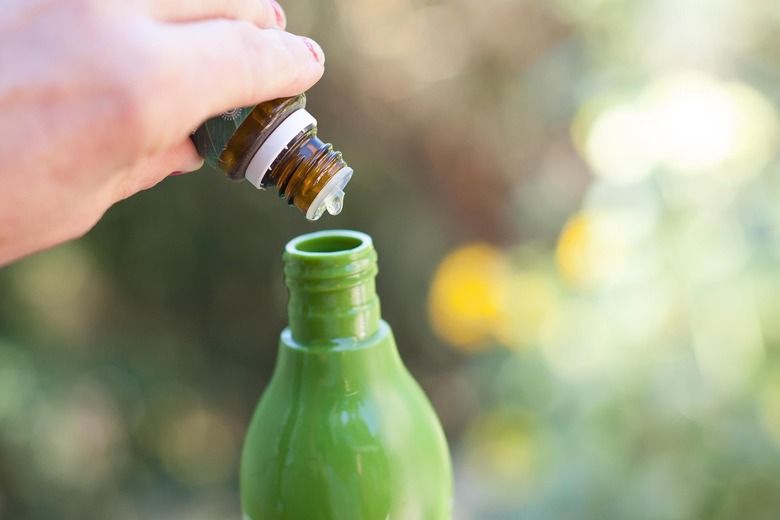Does Lavender Oil Repel Fleas?
Prescription flea medications are safe for most dogs and cats. However, they are a type of pesticide, leading some people to look for alternative flea repellants from natural sources, such as lavender oil. Lavender oil for dog fleas is believed to effectively repel the insects but not kill them.
However, there isn't much scientific data to support the use of lavender oil as a flea repellent, but many essential oil enthusiasts purport its benefits for pets. Not everyone agrees because some essential oils can be toxic to dogs and cats. Never use concentrated lavender oil or any essential oil directly on your pets.
Lavender oil for dog fleas
Lavender oil for dog fleas
Lavender is a calming scent known to help people relax, sleep, and reduce stress and tension. Plus, it's generally a pleasant smell to be around — for people. Fleas have a very strong sense of smell and apparently dislike the smell of lavender. Essential oil proponents suggest mixing a few drops of lavender oil with water in a spray bottle and then spray areas where you want to repel fleas, such as a dog bed or living room carpet. You could also intermittently spray it in the air as needed.
You can also add water with a few drops of lavender oil into a diffuser. A diffuser regularly sprays a fine mist of lavender scent into the air, apparently keeping away fleas. This is also a possible strategy if you are concerned that fleas have laid eggs that have hatched in carpets. The diffuser mist should also keep fleas off fabric furniture. However, this is not without risk, especially for cats. Consult your vet before using a diffuser around your pets.
Using essential oil to kill fleas
Using
essential oil to kill fleas
Lavender oil does not kill fleas. Lavender oil only repels fleas, so its application is purely preventative. Essential oils thought to kill fleas include cedar, lemongrass, eucalyptus, tea tree, and peppermint oils. However, there is limited scientific evidence to support these claims, and many sources suggest that the risks of using these oils outweigh the benefits. Not everything labelled as natural is safe.
Consult a veterinarian before using essential oils on or around your pets. Also, if you have a flea infestation in your home already, it's unlikely that essential oils will be strong enough to destroy the infestation. Furthermore, lavender oil is only used to repel fleas, not ticks. A lack of tick medication leaves your pet vulnerable to tick-borne illnesses, such as Lyme disease.
Risks of essential oils for pets
Risks
of essential oils for pets
Essential oils are made from highly concentrated plant substances. The reported benefits, such as repelling fleas, can be negated by the toxic properties of many essential oils, particularly for cats. Cats lack the ability to process certain compounds in essential oils, specifically phenols. Exposure to phenols in essential oils can lead to liver damage, liver failure, respiratory failure, seizures, and possibly death. Pets can absorb essential oils easily through the skin or by breathing them in.
Essential oils listed as toxic include pennyroyal, pine, tea tree, wintergreen, cinnamon, citrus, peppermint, sweet birch, ylang-ylang, clove, and eucalyptus. Lavender oil is not on the list, but the more diluted the oil, the better. Dogs are slightly less sensitive to essential oils than cats, but dogs have a much stronger sense of smell than humans, and the smell of lavender oil might be overwhelming for them. Consult a vet before using lavender oil or any essential oils to repel fleas.
Planting lavender outdoors
Planting lavender outdoors
Planting lavender in your garden might be the safest way to benefit from the flea-repellent properties of the plant. Lavender is reasonably easy to grow, is pleasant-smelling, and can act as a buffer to repel fleas from finding their way into your house without the risk of diffusing essential oils near your pets.


